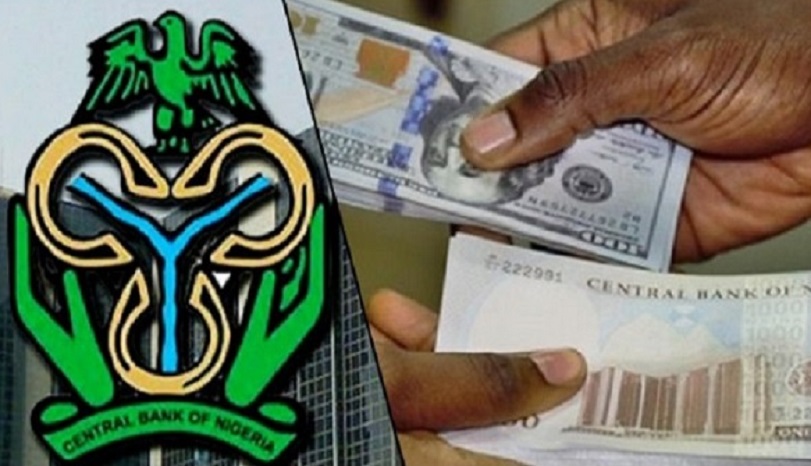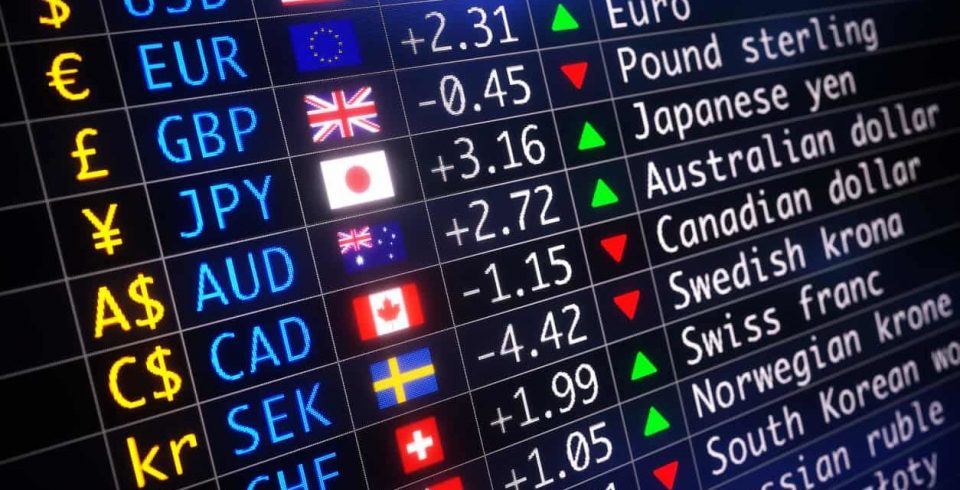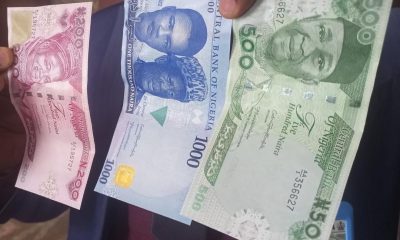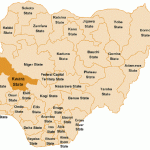Economy
All You Need to Know About Trading in Currency Market

Online trading of currencies is gaining momentum all around the world since the last two decades. Africa alone today has estimated approx. 1.3 million forex traders, South Africa and Nigeria are the leading countries with around 400,000 traders locally combined.
The currency market is a decentralized international financial market where buying, selling and exchange of global currencies among buyers and sellers take place.
In the currency market, the values of currencies are determined based on supply and demand, and it is the largest financial market with transactions crossing over $6.6 trillion per day.
The bulk of currency trading volume comes from trading between banks, institutions, governments and companies. But approximately 5.5% of trading volume constitutes of retail investors and this figure is growing.
The advancement in internet, electronic trading tech, the rise of low-cost brokerages and the availability of diverse trading platforms to African traders have caused online trading to gain popularity among retail investors in Africa, especially Nigeria and South Africa.
How does currency or Forex market work? What decides currency rates?
Currency trading is the buying, selling and exchange of currencies like Euro or the US Dollar or any other two currencies against one another; where you give one currency to get another.
If you have travelled abroad or ordered something online from a different country in another currency like EUR or USD, then it is likely you have made a forex transaction.
Currency trading always involves trading between a pair of currencies. In contrast to stock trading where you buy a company’s share, it involves taking a position on a currency pair.
For example, GBP/USD represents the value of how much US Dollars you can buy with one Pound. If you think that Pound’s value will rise, you buy GBP with dollars. If your prediction is right, you could make a profit. Similarly, you can trade any other currency available in the Forex Market.
FX or currency market works on a simple economic concept of demand and supply. For instance, if there are more buyers for the US dollars in the market, its value will appreciate and vice-versa.
The demand and supply are affected by global trade, geopolitical events, interest rates and financial news. These factors create volatility in the currency market which in turn creates an opportunity for traders to speculate on the movements of currency prices.
For example, if the US Federal Reserve announces a higher interest rate, then US dollars will appreciate and other weaker currencies will likely depreciate against it.
What differentiates FX from other financial markets is that it operates 24 hours in different time-zones. It means when the trading day ends in the US, it begins in Japan and Hong Kong. That’s why currency prices are constantly changing.
How are currencies traded?
Currencies are always traded in pairs like EUR/USD or GBP/EUR.
There are mainly four ways how institutions, companies and individuals trade in FX market: spot contracts, swaps, forward and options. Swaps account for roughly 50% of the total FX trade.
Forex Spot, Forward and Swap Contracts
Most actual trade or non-speculative trade of currencies between banks, corporations, the governments take place using contracts like spot, forward and swaps.
In the Spot FX, currencies are exchanged at the current market price or exchange rate. Spot trades are usually settled within 2 days of contract and the majority of currency trading takes place through swaps.
Swap, also known as a cross-currency swap, is an agreement between two parties to exchange two different currencies at a predetermined spot-rate over a period of time. Swaps are more common among financial institutions or governments. Global companies usually get into a currency swap mainly for securing cheaper debts.
The forward contract is similar to spot trading, except in this the currency exchange occurs in the future. A forward contract entails an agreed-upon exchange rate, volume and a specified maturity date. When the contract reaches it maturity date, the buyer has to pay the amount at the agreed-upon exchange rate. The buyer may incur losses if the current spot rate is lower than the pre-agreed rate.
Currency Derivatives
Currency derivatives are of two types options or futures. Currency derivatives are considered one of the best options to manage currency-risks. They are usually exchange-based futures and options contracts. These future-oriented currency contracts can be purchased at a predetermined price and date.
FX Options is a contract where a buyer obtains the right to buy foreign currencies from a seller at a specified rate and date. The buyer, however, is not obligated to buy it. Similar to insurance, the buyer just needs to pay the premium to buy an FX Option. FX Futures contract is similar in nature but parties are obligated to settle the contract.
Multinational corporations usually use FX Options to protect their investments from currency fluctuations.
Locally in Nigeria, the Nigerian Stock Exchange (NSE) is planning to introduce financial derivatives next year. Currently, LCSE offers trading in four asset classes including currencies (both local and foreign). In the rest of Africa, JSE offers currency derivatives on all major currencies against ZAR.
Currency CFDs
A contract for difference (CFD) is an agreement between the two parties (trader and broker) to exchange the difference in the price of an underlying asset at the end of the trade. The difference in price is calculated from the point when the contract opened to when it ended. In CFD trading, neither broker nor the investor owns any underlying asset.
Most retail forex traders trade forex online as CFDs with retail forex brokers. But there are no locally regulated forex brokers in Nigeria.
All the best forex brokers available in Nigeria are foreign brokers that offer CFDs on currency pairs. As online forex trading is still unregulated in Nigeria, traders must ensure they only trade with top-tier regulated brokers for safety of their funds & fair-dealing; like through brokers regulated by FCA or ASIC or CySEC.
How currency trading can be risky?
The Forex market is inherently risky. The risks range from market risks like extreme volatility to other risks like the use of high margin.
Here are some of the risks that you should watch out for:
Market volatility and unpredictability
The forex market can be highly unpredictable. The release of a new economic data or a new bilateral/regional trade deal can cause volatility in the Forex market.
Major currency pairs tend to remain relatively stable. But exotic currency pairs which have lower trading volumes can be very volatile.
Volatile currencies tend to move in any direction based on a market event or even without it in some cases. The unpredictable movement can cause huge losses.
Leverage and margin risk
The availability of high leverage is one of the reasons why currency trading is why so many traders get attracted to it.
Leverage can amplify a trader’s profit but at the same time, the unwise use can cause significant losses.
For example, in a 100:1 leverage factor, a trader could trade USD$10,000 with just $100 margin deposit. So, suppose a currency pair made a 1 pip loss that means loss of $1. If it changes to 50 pips loss than half of your margin money could be gone in seconds.
Counterparty or third-party risk
Risks related to counter-party or market maker or Broker, where they are not able to fulfil your contract or order due to credit risk or volatile market conditions is another major risk factor. And sometimes these counterparties also deal in malpractices.
There have been numerous instances in the past when people were fooled through Ponzi schemes & bad brokers. For the safety of your capital, one must always choose a broker that is regulated by multiple Tier I and Tier II regulators.
Other risks to know
There are other associated risks too with trading currencies including Country risk, Interest Rate Risk, Transaction Risk, Liquidity Risk etc. One must understand all these risks and try to mitigate them before trading.
Another major risk is of losing money. There is no denying that Forex trading is very risky. Roughly 60-70% of traders lose their capital due to different reasons. However, unwise use of leverage is considered one of the top reasons for trading-losses.
One can possibly mitigate some of these risks by adopting a sound trading plan, using leverage (max 1:10) and proper risk management.
Economy
FG Saves N6trn in Fuel Subsidy Payments in 2025—NMDPRA Chief

By Adedapo Adesanya
The chief executive of the Nigerian Midstream and Downstream Petroleum Regulatory Authority (NMDPRA), Mr Saidu Mohammed, has revealed that bold economic reforms by President Bola Tinubu’s administration saved the country over N6 trillion on petroleum product imports in just the first nine months of 2025.
Mr Mohammed disclosed this while speaking at the Nigeria International Energy Summit (NIES) in Abuja, said the savings were the result of full downstream deregulation, harmonisation of the forex market, and the trading of crude and petroleum products in Naira.
He added that these bold moves have created stability in the downstream petroleum market, encouraged investment, and ensured a sufficient supply of petroleum products across the country.
The NMDPRA boss also revealed that the nation’s refining capacity is expected to surpass 1 million barrels per stream day (bpsd) in the medium term.
He said the surge in domestic refining capacity is being driven by a combination of new refinery investments, the rehabilitation of existing Nigerian National Petroleum Company (NNPC) Limited refineries, and strategic private-sector participation.
According to him, the planned investments in other refineries, along with issued Licences to Establish (LTEs) for new facilities, will continue to expand Nigeria’s refining footprint, reducing dependence on imported products and stabilising domestic supply.
He said: “For decades, our downstream value chain has been associated with negative sectoral performance indicators such as infrastructural deficit, weak market structures, sub-optimal supply chain efficiency, inadequate investment, poor regulatory compliance, and unacceptable operational safety and environmental indices.
“Today, I am pleased to affirm that this narrative is rapidly changing and that the sector is truly witnessing the early but irreversible signs of a renaissance-type transformation that is driven by bold reform; enabled by investment; and sustained by effective market and operational regulatory enablement.
“In the few years of the operationalisation of the new legal framework of the Oil and Gas sector in Nigeria (PIA 2021), Nigeria’s downstream sector has evolved into a fully liberalised market and is no longer defined by scarcity and supply uncertainty.
Supply stability has consistently ensured sufficiency of all Petroleum products. The pricing structure of the downstream sector is becoming more driven by the fundamentals of the market and generally attaining the stability level required for encouraging investment in this expansive sector of the economy.
“The supply chain landscape of the sector, which depended significantly on import of nearly all Petroleum Products for a long time, is rapidly transforming with growing supply through the nation’s domestic refining capacity, expanding gas-based alternative fuels, improved logistics, and increased private-sector participation.
“At the heart of this transformation stands the Dangote Petroleum Refinery, the largest single-train refinery in the world with an installed capacity of 650,000 barrels per stream day (bpsd), which is currently contributing a significant portion and in some cases 100 per cent of our domestic requirement of Petroleum Products. The optimal operationalisation of the plant’s installed capacity and future upscaling of the plant is undoubtedly needed to fulfil the national aspirations of making Nigeria a regional and continental energy hub.
“The capacity for enhanced domestic supply of Petroleum product in Nigeria will continue to grow as the planned investments in our refinery sector mature. We are optimistic that the issued Licences to Establish (LTEs) refineries, which are being progressed through various levels of completion, coupled with the rehabilitation of the NNPCL refineries, will improve the overall installed refining capacity in Nigeria to well over 1 million bpsd in the medium term.
“The bold economic reforms of President Bola Tinubu have created the renaissance that the downstream sector is enjoying and would continue to leverage upon for sustained sectoral growth in the future. The cumulative impact of the full deregulation of the downstream sector, the harmonisation of the forex market, the incentivization and deepening the use of gas and the trading of crude and product in Naira has reduced the fiscal economic losses of importing Petroleum Product by over N6 trillion in the 1st nine months of 2025.”
Economy
Nigeria Targets 10bscfd Gas Production in Next Four Years

By Adedapo Adesanya
The federal government says Nigeria is targeting gas production of 10 billion standard cubic feet per day (bscfd) by 2030, positioning natural gas as a cornerstone of national energy security and economic prosperity.
The Minister of State for Petroleum Resources (Gas), Mr Ekperikpe Ekpo, said this while delivering a ministerial address at the ninth Nigeria International Energy Summit (NIES) 2026 in Abuja.
The Minister said the government’s efforts were yielding tangible results, with Nigeria’s gas production maintaining an upward trajectory in 2025, averaging between 7.5 and 7.6bscfd.
He disclosed that domestic gas supply exceeded two bscfd for the first time, marking a historic milestone for power generation, industrial use and household consumption.
The Minister also said significant progress in environmental performance, with gas flaring reduced to some of the lowest levels recorded in recent years, in line with Nigeria’s commitment to end routine gas flaring by 2030.
He noted that investor confidence in the gas sector had been strengthened, citing Final Investment Decisions (FIDs) in key upstream gas projects supported by improved regulatory clarity under the Petroleum Industry Act (PIA).
“Across the midstream and downstream segments, pipeline infrastructure, processing facilities and gas-to-power projects have expanded, improving connectivity, boosting domestic utilisation and supporting cleaner cooking solutions, job creation and industrial stability.
“Under President Bola Tinubu’s Renewed Hope Agenda, government policy prioritises the expansion of domestic gas infrastructure while strengthening Nigeria’s presence in regional and global gas markets.
“This includes facilitating investments in gas processing, storage and distribution, as well as accelerating gas-to-power projects aimed at addressing energy poverty and enhancing industrial competitiveness,” he said.
The minister emphasised that Nigeria’s energy future was inseparable from peace, partnership and shared responsibility, calling on governments, investors, development partners, host communities and civil society to move from dialogue to decisive action.
“Our collective task is to build an energy system that powers prosperity, strengthens stability and supports regional integration,” he said.
He said Nigeria’s energy strategy is firmly aligned with global energy transition realities while responding to Africa’s unique development challenges, including widespread energy poverty, limited industrial capacity and inadequate access to reliable power.
“While the world moves towards lower-carbon systems, Africa must pursue a transition that is not only green, but also just, inclusive and development-driven.
“Nigeria is leveraging its abundant natural gas resources to balance climate responsibility with economic development, positioning gas as the backbone of industrial growth, job creation and expanded energy access,” he said.
Economy
Transcorp, DMO, CardinalStone, Chapel Hill Denham, Others Win at NGX Made of Africa Awards
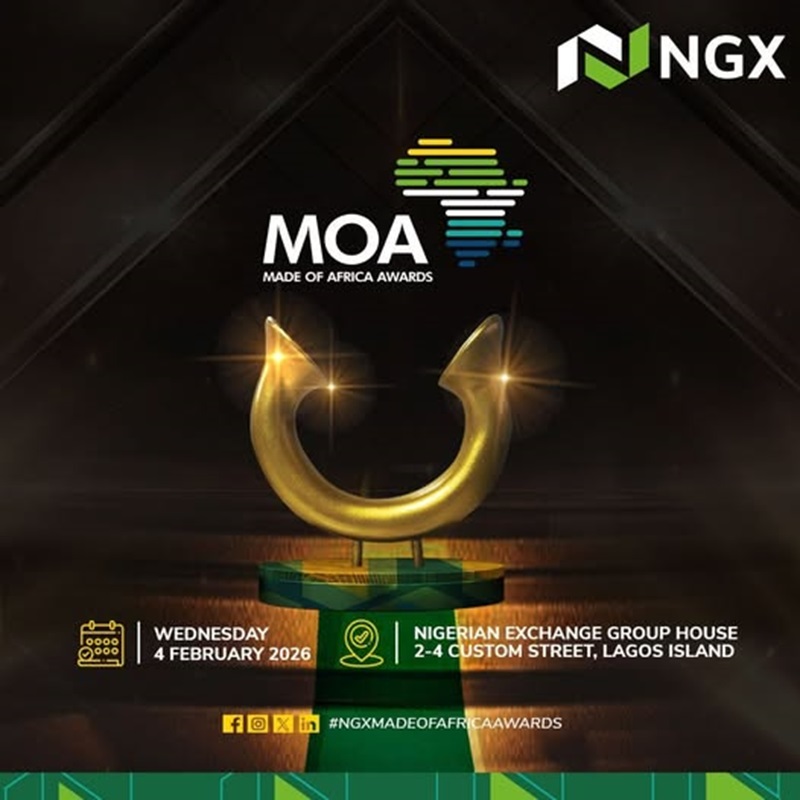
By Aduragbemi Omiyale
The 2025 Made of Africa Awards, hosted by Nigerian Exchange (NGX) Group Plc, paraded an array of winners, including brokers, issuing houses, trustees, fund managers, listed companies, and other market participants.
The event was to reward excellence in value delivery, compliance, and market impact, with Transcorp, the Debt Management Office, CardinalStone, Chapel Hill Denham, and MTN Nigeria Communications as recipients.
Business Post reports that the other recipients were First Trustees Limited as the Best Trustees in Terms of Deal Value, Legend Internet as the Market Debut Excellence award winner.
Further, CardinalStone Securities emerged as Equity Trader of the Year and Broker of the Year, Capital Express Securities won ETPs Trader of the Year, and Stanbic IBTC Stockbrokers was named Fixed Income Trader of the Year. Chapel Hill Denham received awards for Fund Manager with the Largest Listed Fund Size and Market Operator with the Highest Value of Foreign Portfolio Investment Transactions.
Mainstreet Capital and APT Securities and Funds jointly won Issuing House with the Highest Number of Primary Market Equity Transactions, while Anchoria Advisory Services led in corporate bond issuances. Dangote Cement was named Best Issuer in Terms of Fixed Income Listings, BUA Cement received the award for Most Compliant Listed Company, and Transnational Corporation Plc was honoured for Capital Market Excellence in Equity. Network Capital was named the Most Compliant Trading License Holder, United Capital Securities won the Best Sponsoring Trading License Holder and Banwo and Ighodalo received recognition for legal advisory value in capital market transactions.
Special recognition went to the Debt Management Office for fixed income market development and to the Capital Markets Correspondence Association of Nigeria for capital market reporting, and Lambeth Capital/Bamboo Systems Technology were recognised for onboarding the highest number of new retail investor accounts.
The chairman of NGX Group, Mr Umaru Kwairanga, said the awards underscore the role of market stakeholders in strengthening investor confidence and improving market standards.
“Their achievements set a benchmark for performance, integrity and innovation across the capital market,” he said, adding that sustaining this level of discipline and transparency is essential to maintaining the trust of both domestic and international investors in Nigeria’s financial markets.
The chief executive of NGX Group, Mr Temi Popoola, said, “Operational efficiency and cooperation across the ecosystem are increasingly important as trading activity diversifies and investor expectations continue to rise.”
On his part, the Executive Commissioner for Operations at the Securities and Exchange Commission (SEC), Mr Bola Ajomale, said the awards underscore the value of compliance and transparency in market development.
“Recognition through the Made of Africa Awards reinforces the importance of adherence to market rules and standards. When operators demonstrate accountability and professionalism, it strengthens investor confidence, ensures market integrity, and supports sustainable growth across Nigeria’s financial markets,” he said.
The chief executive of NGX Limited, Mr Jude Chiemeka, said recognising strong performance across the ecosystem supports deeper market participation and long-term capital mobilisation.
-

 Feature/OPED6 years ago
Feature/OPED6 years agoDavos was Different this year
-
Travel/Tourism9 years ago
Lagos Seals Western Lodge Hotel In Ikorodu
-

 Showbiz3 years ago
Showbiz3 years agoEstranged Lover Releases Videos of Empress Njamah Bathing
-

 Banking8 years ago
Banking8 years agoSort Codes of GTBank Branches in Nigeria
-

 Economy3 years ago
Economy3 years agoSubsidy Removal: CNG at N130 Per Litre Cheaper Than Petrol—IPMAN
-

 Banking3 years ago
Banking3 years agoSort Codes of UBA Branches in Nigeria
-

 Banking3 years ago
Banking3 years agoFirst Bank Announces Planned Downtime
-

 Sports3 years ago
Sports3 years agoHighest Paid Nigerian Footballer – How Much Do Nigerian Footballers Earn


